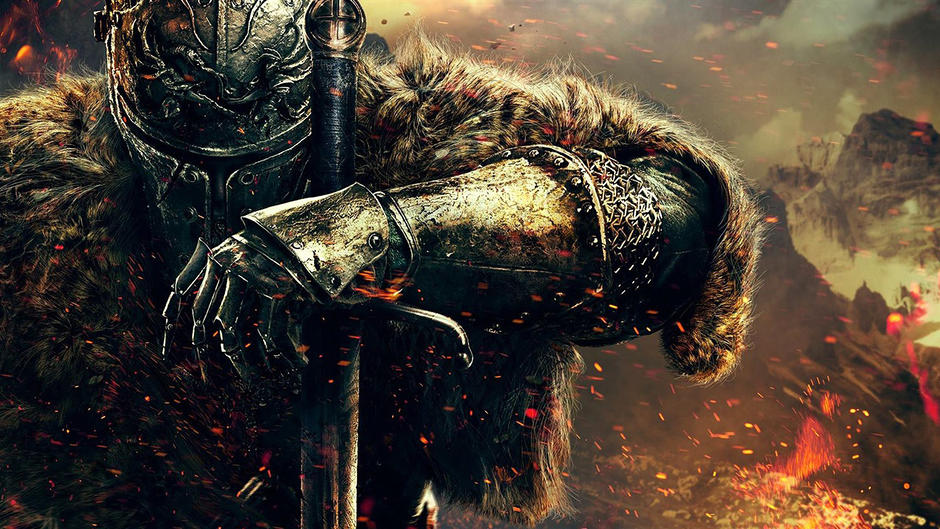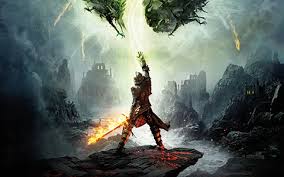 Dark Souls 2:
Dark Souls 2:
Top Reviews
 Dark Souls 2:
Dark Souls 2:
How much of your humanity are you willing to give up for even the slightest chance of victory?
Dark Souls II asks this question of you at every turn, encouraging you to press onward in spite of imminent death. And with each death, you lose a little of your humanity and become more hollow. Your maximum health slightly diminishes each time as well, eventually sinking to 50 percent of its full value, and yet as each sliver of humanity is sliced away, you heed the call to move onward. Eventually, you overcome the obstacle that stood between you and victory--that quartet of gargoyles swarming you on a rooftop, that arachnoid demon plunging poisonous pincers into your flesh, that disgusting mound of meat that defies description. You have triumphed! But your gain does not come without sacrifice. You have sworn, you have gasped, and you have sweated. You have forfeited your own humanity so you might collect the souls of the damned.
Like Dark Souls and Demon's Souls before it, Dark Souls II is not just a fantasy role-playing adventure, but a cloud that hangs heavy over your head whenever you so much as think about it. These modern classics developed by From Software have rightfully earned a reputation for being brutally difficult, but their beauty is derived not solely from difficulty, but also from dread. Dark Souls II is not a survival horror game in the normal sense, but few games can make you this afraid to peer around the corner, while simultaneously curious as to what awaits you there. Death is so very beautiful in this game, for it comes at the hands of amazing beasts and warmongers: hulking armored knights, shimmering otherworldly invaders, and tendrils that rise out of black pools of poison. Sure, each death punctures your heart, but one of Dark Souls 2's many gruesome pleasures is discovering new ways to die. (Read the rest of this review here: http://www.gamespot.com/reviews/dark-souls-2-review/1900-6415691/ )
 Dragon Age Inquisitions:
Dragon Age Inquisitions:
Just as Jesus of Nazareth was asked to answer to claims of his divinity, so too does Dragon Age: Inquisition ask you to respond to rumors of your own godhood. As the game opens, you tumble from a rift in the sky, from which onlookers also see a glimpse of a woman. Many believe that the woman must be Stranded, the prophet whose doctrine inspired the rise of the Chantry, yet you have no memory of the event. Perhaps you are a chosen one; perhaps you are merely fortunate. The Maker may know, but His voice continues to go unheard, at least directly; it is up to you, and those you influence, to decide whether you have been marked by a deity. And just as with real-life matters of faith, there is not always a clear resolution.
Dragon Age: Inquisition does not draw subtle parallels between the Chantry and modern-day Christianity. Its references are obvious and sometimes heavy-handed, but clear allegory aside, this vast and engrossing role-playing game effectively explores matters of faith and devotion on an intimate level, surrounding you with a multitude of people, each of whom navigates evolving religious turmoil in his or her own way. The chaos of the world you are thrust into explores the usual Dragon Age themes--the struggle between mages and templars, the role of the Grey Wardens in holding off demonic blights, and the political machinations of the Orlesian elite among them. But the Chantry takes a central role, and the ways in which the dialogue and gameplay decisions allow you to express your own views of faith make Inquisition the most personal game in the series, which is a wonderful revelation given how much real estate it depicts... (Read the rest of this review at: http://www.gamespot.com/reviews/dragon-age-inquisition-review/1900-6415949/ )
Below is the Trailer for Portal 2, one of my favorite games, and one of the next games I am thinking about reviewing. If you also want this game to have our next review, please suggestion it on our suggestions page, found here.